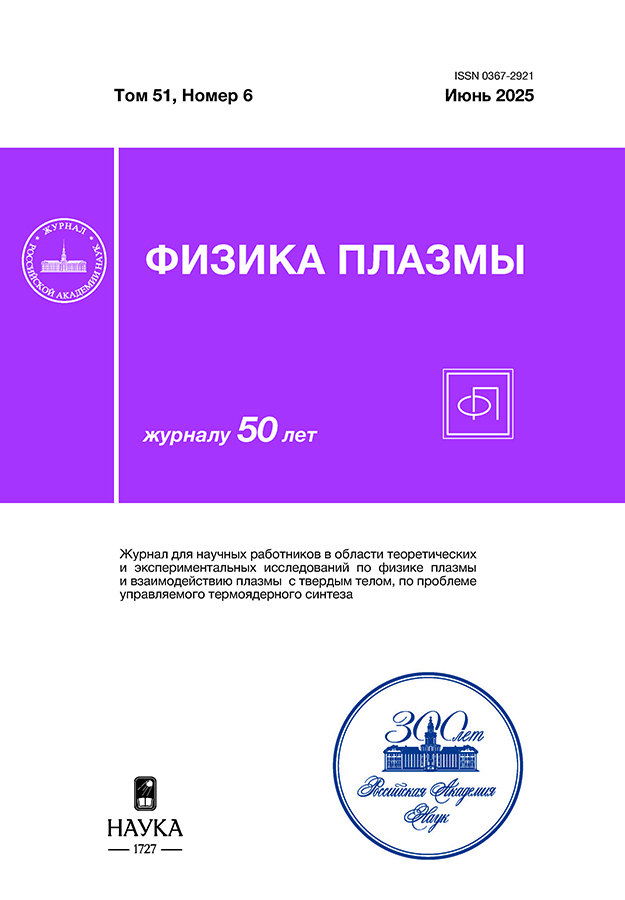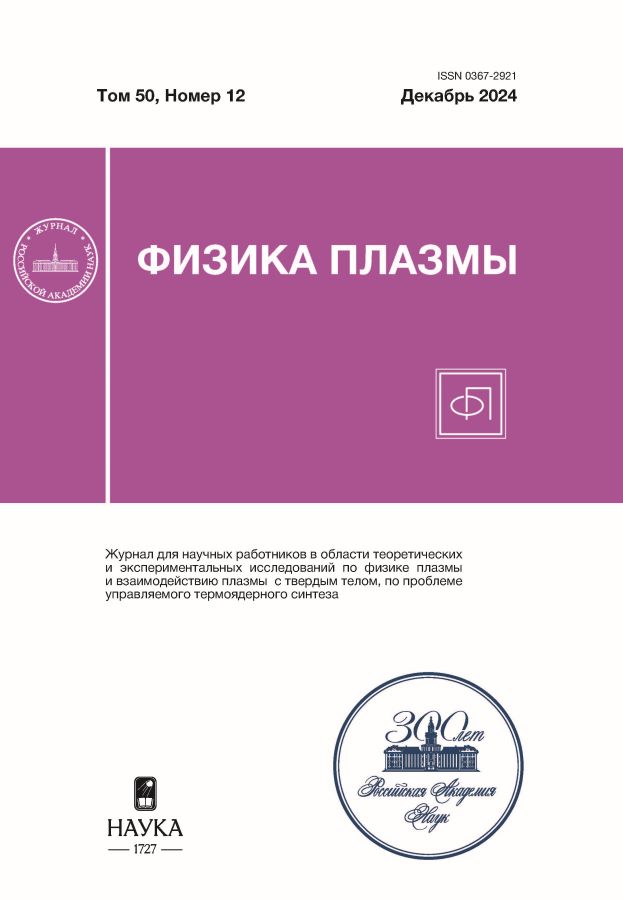Application of dual-wavelength digital holographic interferometry for optical nondestructive wear testing of protective elements of the spherical tokamak Globus-M2
- Authors: Alekseenko I.V.1, Kozhevnikova A.M.1, Razdobarin A.G.2, Elets D.I.2, Medvedev O.S.2
-
Affiliations:
- Immanuel Kant Baltic Federal University
- Ioffe Institute, Russian Academy of Sciences
- Issue: Vol 50, No 12 (2024)
- Pages: 1465-1473
- Section: TOKAMAKS
- URL: https://hum-ecol.ru/0367-2921/article/view/683749
- DOI: https://doi.org/10.31857/S0367292124120054
- EDN: https://elibrary.ru/EEXBHY
- ID: 683749
Cite item
Abstract
The possibility of using the method of dual-wavelength digital holographic interferometry to assess the wear of protective elements of the Globus-M2 spherical tokamak after working plasma discharges is demonstrated. At this stage of the work, the protective elements were removed from the tokamak discharge chamber and used as samples in the holographic setup. A diagram of a holographic interferometer for recording primary holographic images is presented, in which control of the radiation wavelength recording and monitoring systems is carried out through a hardware and software complex in real time. The results of measurements of the shape of tokamak elements are presented. It is shown that when the difference in wavelengths changes, the sensitivity of the measurement method changes, and in the proposed configuration of the optical scheme it is possible to determine the minimum value of the shape change at a level of 10–30 μm. At the same time, the error in determining the phase difference, by which the surface profile is assessed, in the digital method can reach about 2π/40.
Full Text
About the authors
I. V. Alekseenko
Immanuel Kant Baltic Federal University
Author for correspondence.
Email: IAlekseenko@kantiana.ru
Russian Federation, Kaliningrad, 236041
A. M. Kozhevnikova
Immanuel Kant Baltic Federal University
Email: IAlekseenko@kantiana.ru
Russian Federation, Kaliningrad, 236041
A. G. Razdobarin
Ioffe Institute, Russian Academy of Sciences
Email: IAlekseenko@kantiana.ru
Russian Federation, St. Petersburg, 194021
D. I. Elets
Ioffe Institute, Russian Academy of Sciences
Email: IAlekseenko@kantiana.ru
Russian Federation, St. Petersburg, 194021
O. S. Medvedev
Ioffe Institute, Russian Academy of Sciences
Email: IAlekseenko@kantiana.ru
Russian Federation, St. Petersburg, 194021
References
- De Temmerman G., Hirai T., Pitts R.A. // Plasma Phys. Control. Fusion. 2018. V. 60. P. 044018. doi: 10.1088/1361-6587/aaaf62.
- Schweer B., Huber A., Sergienko G., Philipps V., Irrek F., Esser H.G., Samm U., Kempenaars M., Stamp M., Gowers C., Richards D. // J. Nucl. Mater. 2005. V. 337–339. P. 570. doi: 10.1016/j.jnucmat.2004.10.156.
- Pintsuk G., Bobin-Vastra I., Constans S., Gavila P., Rödig M., Riccardi B. // Fusion Eng. Des. 2013. V. 88. P. 1858. doi: 10.1016/j.fusengdes.2013.05.091.
- Кукушкин А.С., Пшенов А.А. // Физика плазмы. 2021. Т. 47. С. 1123.
- Pedrini G., Alekseenko I., Jagannathan G., Kempenaars M., Vayakis G., Osten W. // Applied Optics. 2019. V. 8(5). P. A147.
- Belashov A.V., Zhikhoreva A.A., Semenova I.V. // Applied Sciences. 2022. V. 12. P. 1687.
- Kozhevnikova A.M., Alekseenko I.V., Schitz D.V. // Applied Optics. 2023. Т. 62. С. 7881.
- Friesem A.A., Levy U. // Applied Optics. 1976. V. 15. P. 3009.
- Claus D., Alekseenko I., Grabherr M., Pedrini G., Hibst R. // Light: Advanced Manufacturing. 2021. V. 2(4). P. 403.
- Schnars U., Jueptner W. Digital holography: digital hologram recording, numerical reconstruction, and related techniques. Berlin: Springer, 2005.
- Takeda M., Ina H., Kobayashi S. // J. Optical Soc. America. 1982. V. 72.1. P. 156.
- Kreis T. Handbook of holographic interferometry: optical and digital methods. N.Y.: John Wiley & Sons, 2006.
- Claus D., Alekseenko I., Grabherr M., Pedrini G., Hibst R. // Light: Advanced Manufacturing. 2021. V. 2. P. 29.
Supplementary files



















